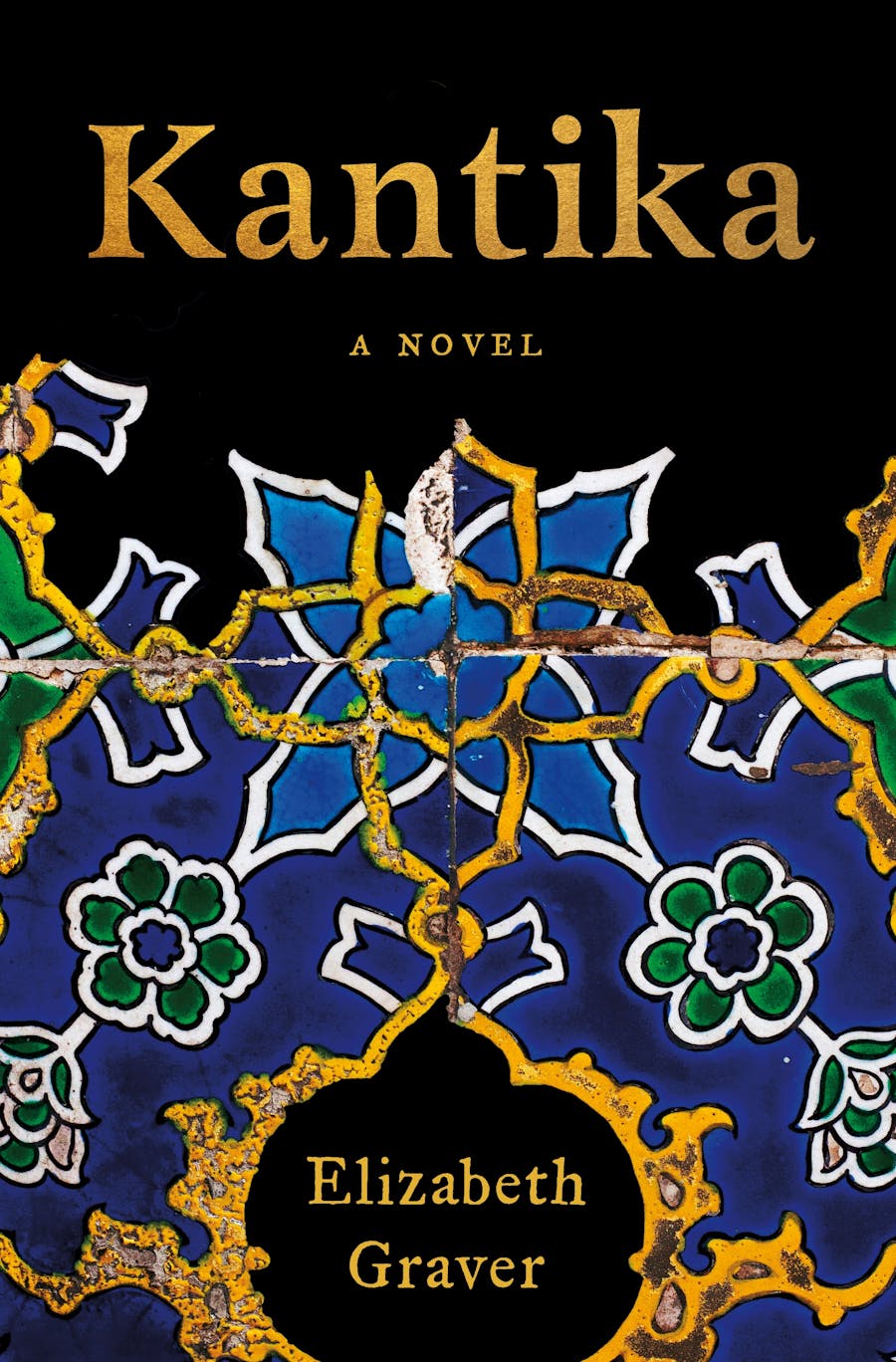Kantika: from History to Fiction, a Sephardic Journey
hosted by Brittany White
| Elizabeth Graver grew up knowing her grandmother Rebecca was from the Ottoman Empire and that her tumultuous, meandering life journey, like many in the Ottoman Sephardi diaspora, had taken her to Spain, Cuba, and finally, the United States. Like so many of us, she wanted to know more about her family history. Graver was twenty-one when she recorded her first interviews with her grandmother. Over the decades, this family history project would eventually become Kantika-—a historical novel inspired by the multigenerational story of Graver's family. In Kantika, she crafts compelling fiction from historical facts as she retraces her grandmother’s journey. Our conversation with Graver will explore familiar themes like migration, displacement, identity, and belonging after the fall of the Ottoman Empire. And we’ll also reflect on the possibilities and challenges of writing intimate family histories as literature and how fiction can help us better conceptualize and understand the past.

 | Click for RSS Feed | 
|

|
Elizabeth Graver grew up knowing her grandmother was from the Ottoman Empire and that her tumultuous, meandering life journey, like many in the Ottoman Sephardi diaspora, had taken her to Spain, Cuba, and finally, the United States. Like so many of us, she wanted to know more about her family history. Graver was twenty-one when she recorded her first interviews with her grandmother, Rebecca. Over the decades, this family history project would eventually become Kantika-—a historical novel inspired by the multigenerational story of Graver's family. In Kantika, she crafts compelling fiction from historical facts as she retraces her grandmother’s journey. Our conversation with Graver will explore familiar themes like migration, displacement, identity, and belonging after the fall of the Ottoman Empire. And we’ll also reflect on the possibilities and challenges of writing intimate family histories as literature and how fiction can help us better conceptualize and understand the past.
Contributor Bios
 |
Elizabeth Graver's fifth novel, Kantika (Metropolitan Books/Holt, 2023), was inspired by her grandmother, Rebecca née Cohen Baruch Levy, who was born into a Sephardic Jewish family in Istanbul. German and Turkish editions are forthcoming. Elizabeth’s fourth novel, The End of the Point, was long-listed for the 2013 National Book Award in Fiction and selected as a New York Times Notable Book of the Year. Her other novels are Awake, The Honey Thief, and Unravelling. Her story collection, Have You Seen Me?, won the 1991 Drue Heinz Literature Prize. Her work has been anthologized in Best American Short Stories, Prize Stories: The O. Henry Awards, The Pushcart Prize Anthology, and Best American Essays. She is a Professor of English and co-directs the Creative Writing program at Boston College. |
 |
Brittany White is a graduate student in the Department of History at the University of Virginia. Broadly, she is interested in the African Diaspora in former Ottoman territories. |
Credits
Episode No. 544
Release Date: 13 May 2023
Recording Location: Boston / Charlottesville
Sound production by Brittany White and Chris Gratien
Music: Haim Effendi - A la una nassi io; Jack Mayesh - Missirlu
Bibliography and images courtesy of Elizabeth Graver
Release Date: 13 May 2023
Recording Location: Boston / Charlottesville
Sound production by Brittany White and Chris Gratien
Music: Haim Effendi - A la una nassi io; Jack Mayesh - Missirlu
Bibliography and images courtesy of Elizabeth Graver
Further Listening
 |
Randa Tawil | 536
1/21/23
|
Recovering Migrant Histories |
 |
Deporting Ottoman Americans | 411
5/2/19
|
Turkino |
 |
Sarah Abrevaya Stein | 434
11/20/19
|
Family Papers and Ottoman Jewish Life After Empire |
 |
Devi Mays | 417
7/4/19
|
Mexico and the Modern Sephardi Diaspora |
 |
Devin Naar | 314
5/19/17
|
Jewish Salonica and the Greek Nation |
 |
Sato Moughalian | 471
8/13/20
|
David Ohannessian: Art, Exile, and the Legacies of Genocide |
Images

Istanbul, 1907. Rebecca Cohen on left, with siblings Isidoro and Corinne. Their cousin Victoria stands behind them.

Istanbul, ~1920. Rebecca Cohen.

Barcelona, 1928. Rebecca née Cohen Baruch sits holding her son, Albert, with son David in front of her. Her parents, Sultana and Alberto Cohen, stand behind her with other relatives and friends.

Film Still, "Jews of the Spanish Homeland," 1929, Rebecca in dark coat, with sons Albert and David in front of her and her brother Josef in doorway. Woman in striped dress unknown. Reprinted with permission of the National Center for Jewish Film

Catskills, 1937. Sam Levy rows the boat. Albert Baruch mugs for the camera as his brother, David Baruch, leans toward his half-brother, Jack Levy. Rebecca holds her daughter Suzanne and sits beside her stepdaughter, Luna Levy. Unknown boy in water.
Bibliography

Learn more about Kantika and access bonus material at https://elizabethgraver.com/kantika/
Michael Frank, One Hundred Saturdays, Stella Levi and the Search for a Lost World (Avid Reader Press, 2022)
Michal Friedman, “Reconquering ‘Sepharad’: Hispanism and proto-Fascism in Giménez Caballero's Sephardist Crusade,” Journal of Spanish Cultural Studies, Vol. 12.1 (2011): 35-60.
Devin Naar, "Turkinos beyond the Empire: Ottoman Jews in America, 1893 to 1924" (Jewish Quarterly Review Volume 105, Number 2, Spring 2015)
Sarah Abreveya Stein, Family Papers: a Sephardic Journey Through the Twentieth Century (Farrar, Straus, and Giroux, 2019)
"Los judíos de patria española"/"Jews of the Spanish Homeland" https://www.rtve.es/play/videos/archivo-historico/judios-patria-espanola/2915949/











Comments
Post a Comment
Due to an overwhelming amount of spam, we no longer read comments submitted to the blog.